Ukraine aims to evacuate people from besieged Mariupol with ‘tens of thousands’ of lives at stake
Around 170,000 are thought to be trapped in the city that has suffered the worst of Russia’s shelling
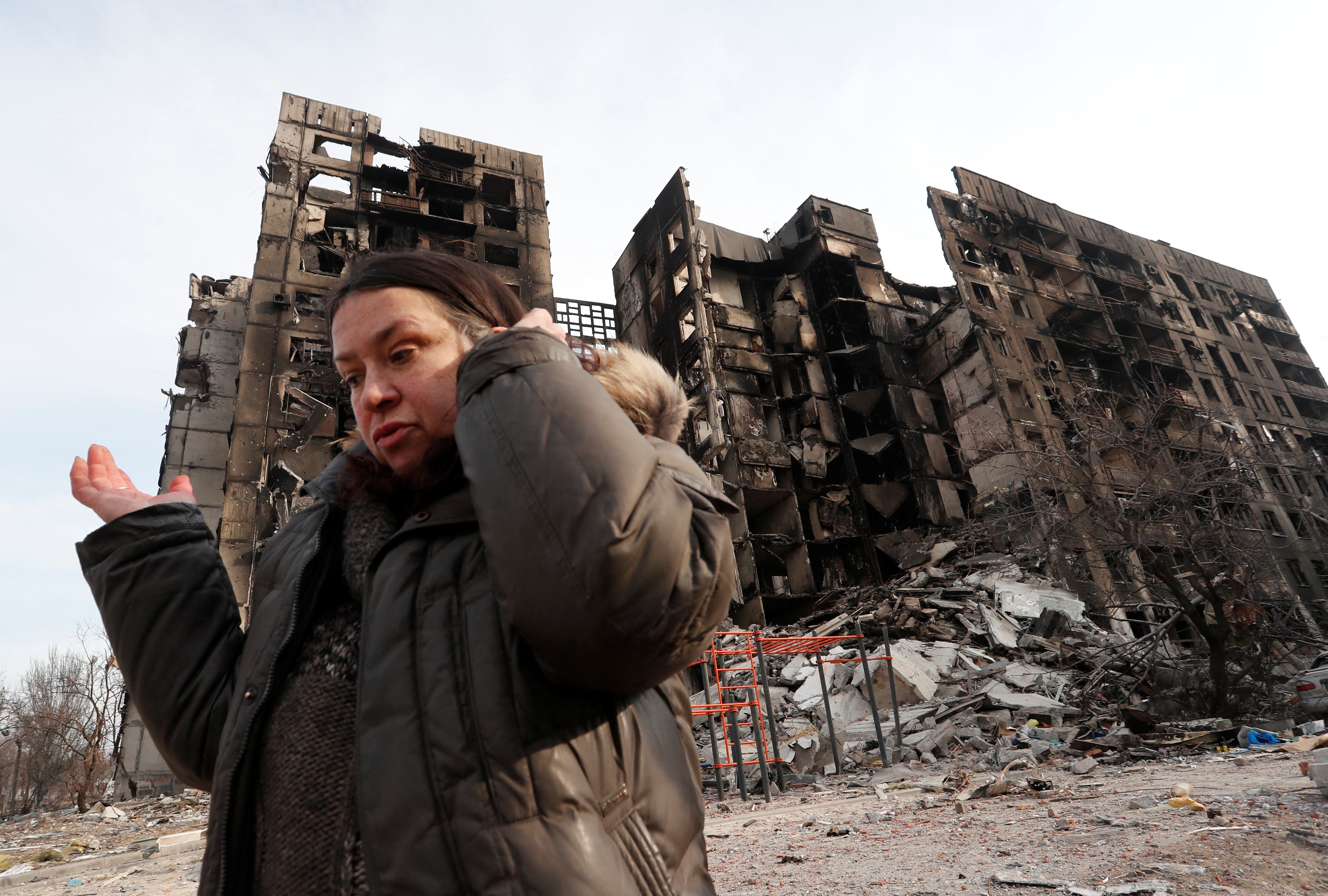
Your support helps us to tell the story
From reproductive rights to climate change to Big Tech, The Independent is on the ground when the story is developing. Whether it's investigating the financials of Elon Musk's pro-Trump PAC or producing our latest documentary, 'The A Word', which shines a light on the American women fighting for reproductive rights, we know how important it is to parse out the facts from the messaging.
At such a critical moment in US history, we need reporters on the ground. Your donation allows us to keep sending journalists to speak to both sides of the story.
The Independent is trusted by Americans across the entire political spectrum. And unlike many other quality news outlets, we choose not to lock Americans out of our reporting and analysis with paywalls. We believe quality journalism should be available to everyone, paid for by those who can afford it.
Your support makes all the difference.Ukraine is planning to evacuate thousands of trapped residents from beseiged Mariupol and deliver aid to those who are unable or unwilling to leave after Kyiv and Russia finally agreed on the opening of a humanitarian corridor, although doubts remained about whether a convoy would reach the besieged city.
Around 170,000 people are thought to still be stranded in the strategic Black Sea port city, which has been under constant bombardment and siege by Russian forces for more than a month.
The city has been described as “worse than hell” by some of those who escaped in their own cars or on foot under shelling and were interviewed by The Independent in the city of Zaporizhzhia.
Several previous efforts to establish a ceasefire in Mariupol in order to evacuate civilians have collapsed, but Russia’s defence ministry said it was prepared to observe a ceasefire in the city on Thursday, and Ukraine said 45 buses would be deployed from Zaporizhzhia.
“We received a message from the International Committee of the Red Cross (ICRC) that the Russian Federation confirms its readiness to open access for the humanitarian convoy to the city of Mariupol,” Ukraine’s deputy prime minister Iryna Vereshchuk said on Thursday morning.
She added: “We will do everything possible to ensure that buses arrive in Mariupol today and pick up people who have not yet been able to get out of the city.”
Maksym Dotsenko, the head of the Ukrainian Red Cross, which is manning logistics on the ground for the evacuation convoy, told The Independent later on Thursday that the buses had left Zaporizhzhia – a city around 200km west of Mariupol – and were en route.
But The Independent understands there are still major logistical hurdles, including guarantees of safety, before the evacuation can go ahead.
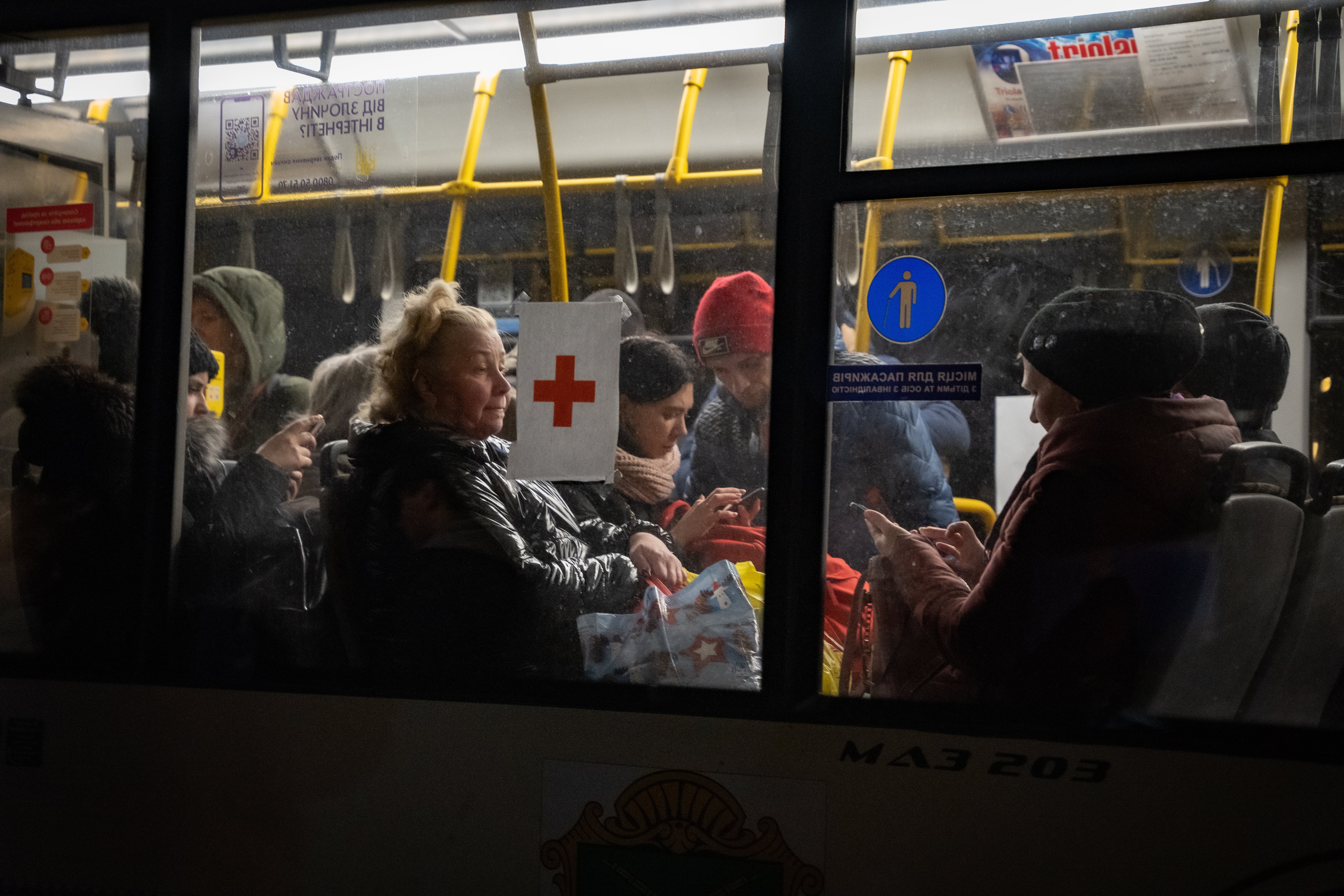
Lucile Marbeau, a spokesperson for the ICRC in Ukraine, told The Independent they hoped to lead a convoy into Mariupol on Friday morning, taking two truck loads of aid for those who wish to stay in the besiged city.
In the trucks, which are still in Zaporizhzhia, she said there were enough basic medicines - from painkillers to antibiotics - for 2,000 people for three months.
Also in the trucks are war-wound kits to treat up to 100 people injured by explosions and blasts.
“The ICRC team right now is pre-positioned in Zaporizhzhia to be ready to facilitate safe passage for civilians desperately wanting to flee Mariupol and to bring in much needed humanitarian aid for those who have decided to stay,” she told The Independent on Thursday evening.
“We are ready to leave tomorrow morning and hope to lead this convoy.”
In an earlier statement, the ICRC said that “the lives of tens of thousands of people in Mariupol depend on it”.
“For logistics and security reasons, we’ll be ready to lead the safe passage operation tomorrow, Friday, provided all the parties agree to the exact terms,” the statement said.
Zaporizhzhia has become the main reception point for those fleeing the coastal city.
Those who managed to make it out of Mariupol alive told The Independent that they had spent the last four weeks living underground, only surfacing to make food on campfires.
When water, electricity, mobile networks and heating were cut off, they were reduced to tapping their radiators for water, melting snow, drinking rainwater, or running through shelling to get to springs.
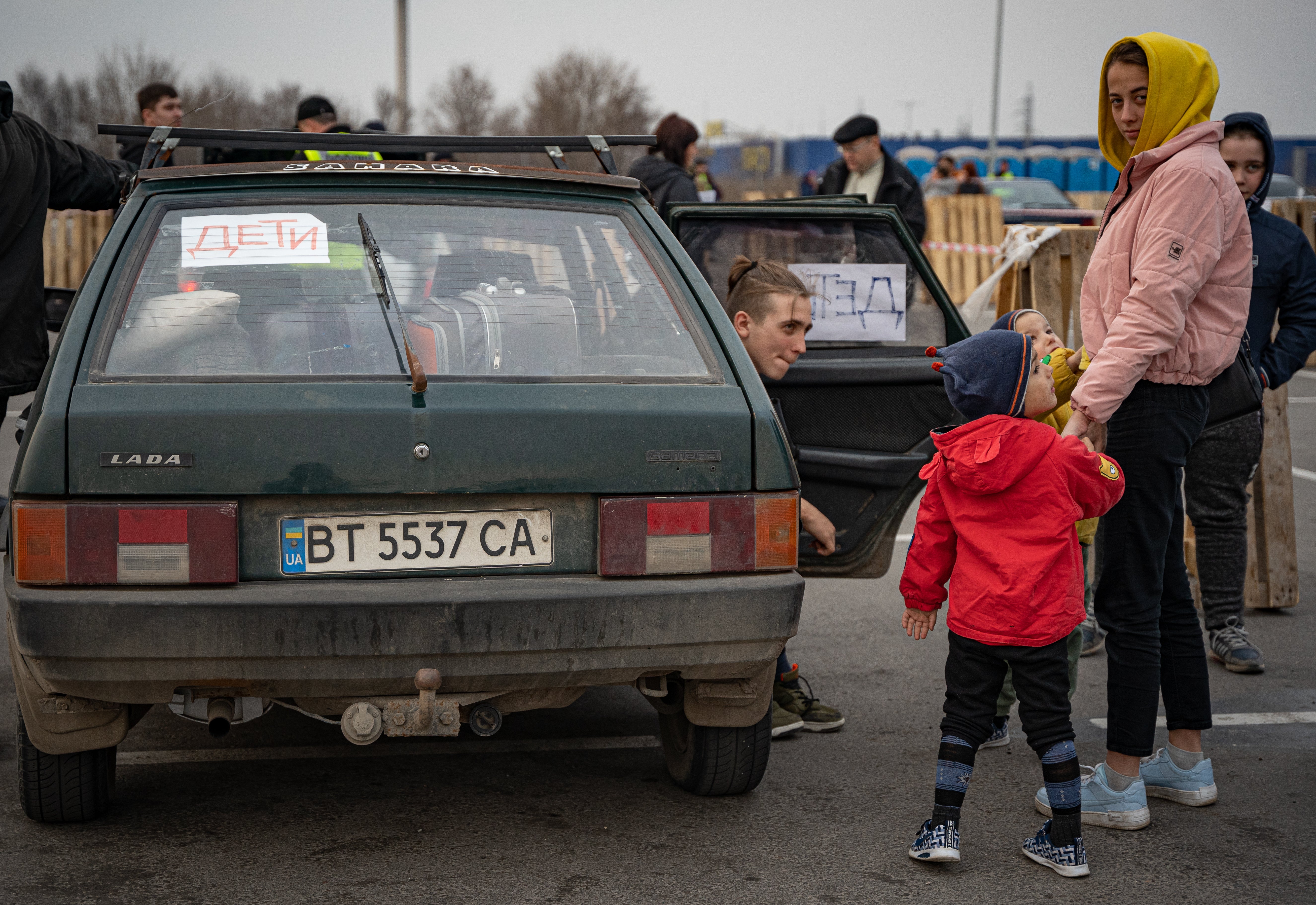
“More than 80 per cent of the city is completely destroyed. There must be thousands of dead. It’s too dangerous to even pull the bodies out from under the rubble to count them,” said Ruslan, 39, who escaped Mariupol the day before yesterday with his three-year-old daughter and wife after stumbling upon a Red Cross volunteer who was trying to find survivors.
He said his mother, sister and stepfather remain trapped in the city, as they were in an area known as the Left Bank, which has been hardest hit.
He has not been able to get through to them since the second week of the war, which erupted when Vladimir Putin’s forces invaded Ukraine on 24 February.
“The shelling was too intense to even get to the surface to cook. We were cooking in the corridors of our home. I saw bodies ripped apart in front of my eyes; corpses laying on the ground for days,” Ruslan added, showing photos of his neighbourhood where missiles had demolished entire sides of buildings.
Mr Dotsenko of the Red Cross said the situation in the city was so dire it was “crucially important” that these buses be allowed to come through.
“Past attempts at corridors have not worked,” he said, explaining that they had come under shelling from Russian forces. “If this is successful, it will be the first proper evacuation from Mariupol.”
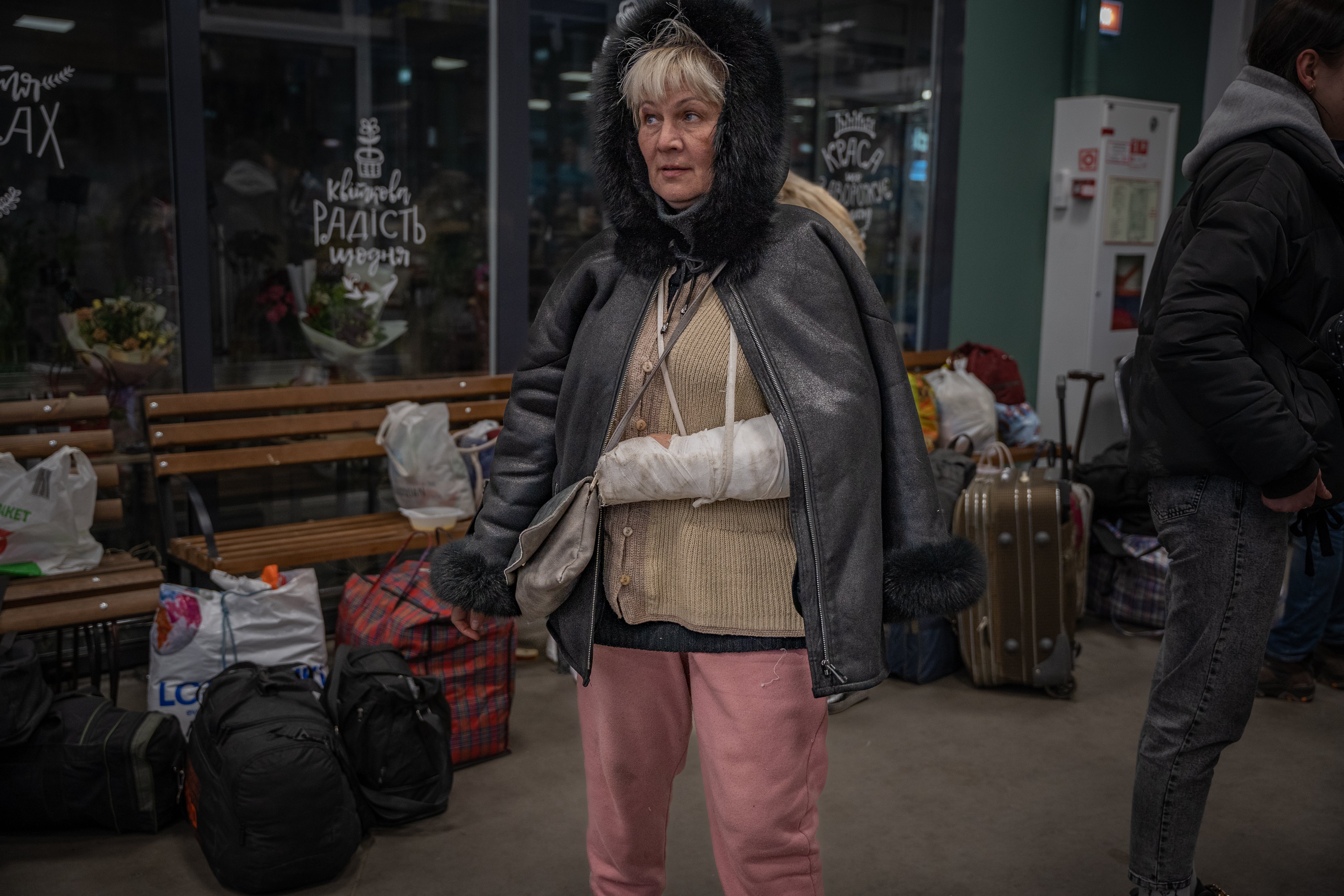
There are reports of hungry people eating stray dogs, and claims that Russia has committed a war crime in Mariupol in relation to the bombing of a theatre where thousands of civilians were sheltering.
The UN has also claimed that there is increasing evidence of mass graves within the city – a claim that was corroborated by more than a dozen witnesses who spoke to The Independent after leaving Mariupol. Russia has said it is not targeting civilians.
Survivors shared video footage and photos showing the devastating conditions in Mariupol. Drone footage also emerged on Thursday that reveals the true extent of the damage, showing charred houses and the city’s skyline covered by white smoke.
On Wednesday, Ukraine claimed that Russian forces had struck a Red Cross warehouse in Mariupol amid intense shelling.
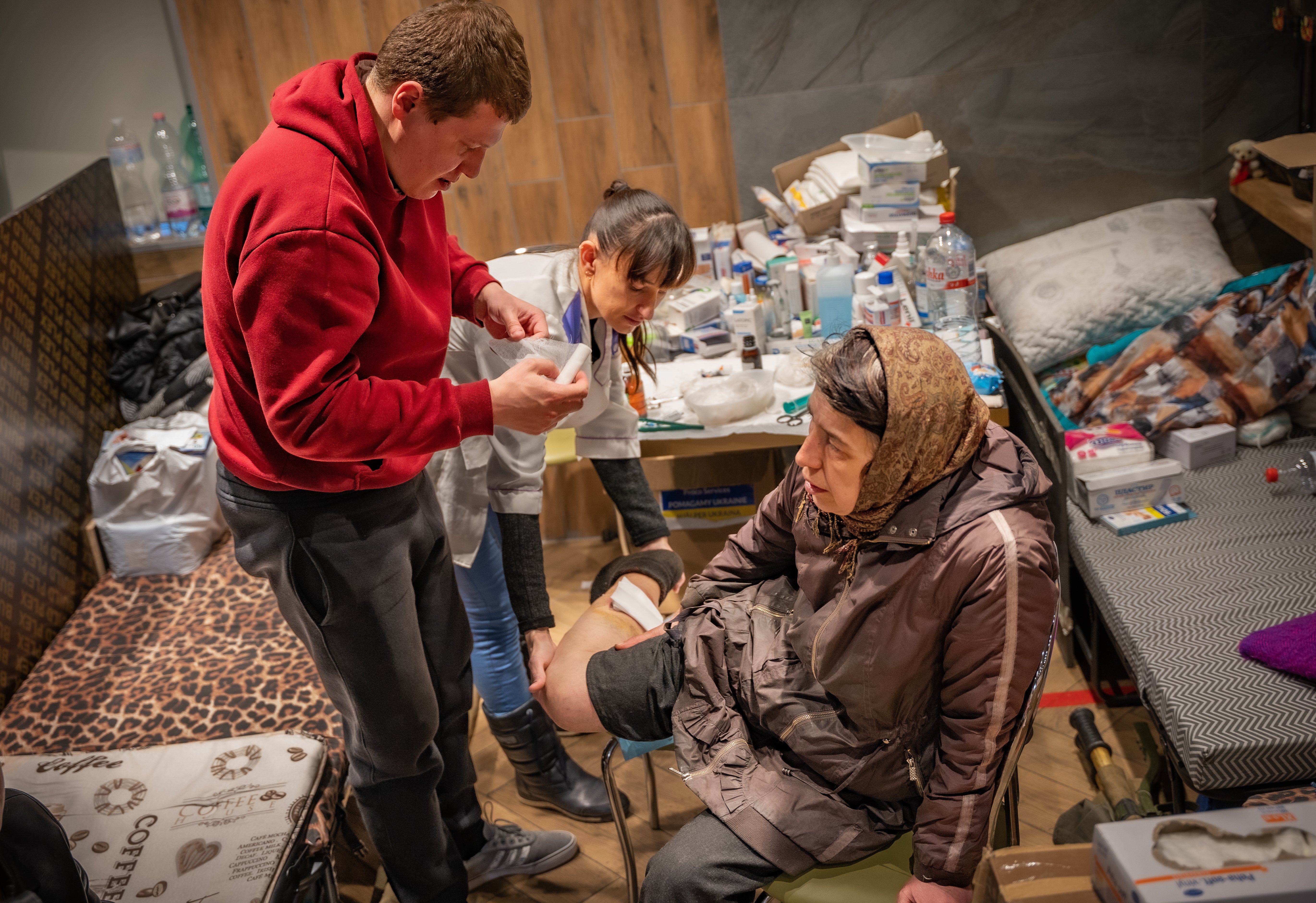
At a reception centre in Zaporizhzhia, Nadezhda, 57, said the elderly, disabled and sick were trapped in their homes, unable even to take cover in their basements.
“My aunt suffocated to death and then burned, because we couldn’t get her to the shelter when the bombing set fire to our building,” she said, as her leg – injured by shrapnel from shelling – was being treated by volunteers. “Mariupol is a nightmare. It’s worse than hell,” she added in tears.
Mr Putin has said his troops will continue attacking the city until Ukrainian forces in Mariupol surrender.
While agreement on a humanitarian corridor is being seen as a positive sign, previous efforts to establish such routes have repeatedly collapsed, with fighting occurring during the agreed ceasefire time, making the evacuation of citizens difficult.
Most citizens who have managed to leave so far have done so in private vehicles, as the two sides could not previously agree on allowing buses into the city.
Home to more than 430,000 people before the war, Mariupol has seen attacks on a maternity hospital, fire department locations, and civilian homes.



Join our commenting forum
Join thought-provoking conversations, follow other Independent readers and see their replies
Comments